Note: This website was automatically translated, so some terms or nuances may not be completely accurate.
OPEN TOKYO ~How to Open Tokyo~

Hiroyuki Fushitani
Time Out Tokyo

Hayato Tobori
Nikkei Inc.

Miki Shirakawa
Nikkei Inc.
Proposed by Nikkei Magazine × Time Out Tokyo
OPEN TOKYO ~2020 and Beyond~

OPEN TOKYO has launched to communicate Tokyo's commitment to "opening up to the world" and "opening up to everyone" for the future. The Nikkei Cross-Media Sales Division and Time Out Tokyo have teamed up to develop this initiative for 2020 and beyond. What is the significance of opening up Tokyo? We spoke with the key figures driving this project.

Toward the Tokyo Games: "Barrier-Free Hearts"!
──The concept "OPEN TOKYO" was introduced in the Nikkei Magazine FUTURECITY published at the end of March, and a launch seminar was held in April. First, please explain the background.
Fushitani: Time Out publishes city guides in 108 cities across 39 countries worldwide. The origin of this initiative was when Time Out London published a guide called 'OPEN LONDON' for the 2012 London Olympics and Paralympics. I wondered what it was and ordered a copy. The cover featured a person in a wheelchair enjoying the city, with an explanation stating, "This is an opportunity for everyone to enjoy London." That's when I realized we needed a guide like this for the 2020 Tokyo Games. Simultaneously, I thought that for 2020, we could do more than just a paper guide. I wanted to expand the idea further and create a movement that could leave a lasting legacy beyond the Games. It was during this process that we decided to collaborate with Nikkei Inc. on an editorial feature.
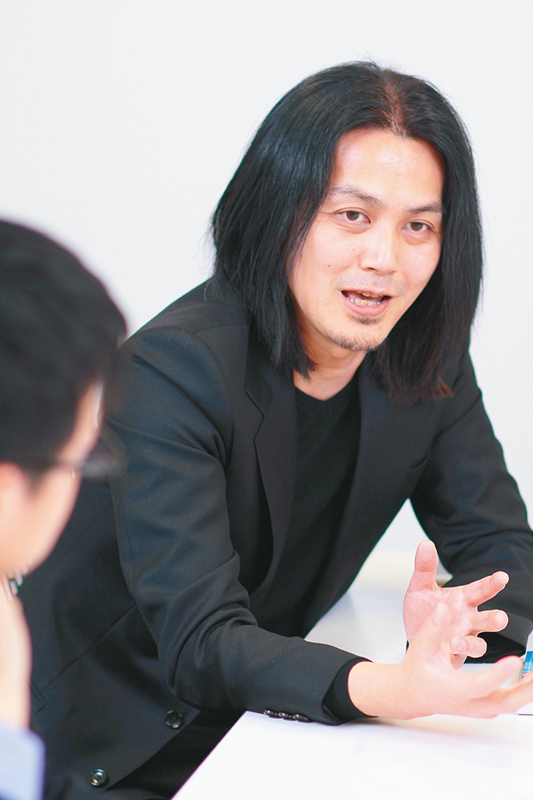
──Looking at Nikkei Magazine FUTURECITY and its English edition featured in Time Out Tokyo Magazine (APR-JUN 2017), it seems the vision of "opening up" Tokyo extends beyond just people with disabilities.
Fushitani: Of course, we're thinking much more broadly. This includes the elderly, children and their parents, the LGBT community, and the foreign residents we always provide information for. I believe the word "open" implies widening access and lowering barriers, and we want to promote that in society. Actually, compared to London, Tokyo is overwhelmingly more barrier-free, whether it's the subway or anywhere else. But as Ms. Manami Tani (who competed in the long jump at three consecutive Paralympics) mentioned in the booklet, we still lack a bit of "mental barrier-free." Japanese people aren't very good at offering a helping hand to those who seem to be struggling in the city. Working alongside NPOs already advancing various barrier-free initiatives, we want to emphasize the importance of the soft side – the mental barrier-free aspect – over the hard infrastructure, and encourage more people to put it into practice.
──Why did the Nikkei Cross-Media Sales Division undertake this project?
Tobori: The upcoming 2020 Tokyo Games present a major opportunity for Japan to consider its image to the world and its future direction. While various newspapers are advancing support for the Games, our core focus remains on economics and technology. We wanted to report on corporate activities leading up to 2020, support the excitement for the Tokyo Games, and simultaneously work on matching NPOs needing financial support with companies. It was at this time we received the proposal for OPEN TOKYO. Furthermore, the "mental barrier-free" concept Mr. Fushitani just mentioned is precisely what I felt when I returned to Japan after being stationed in the US, so I was eager to work on this together.
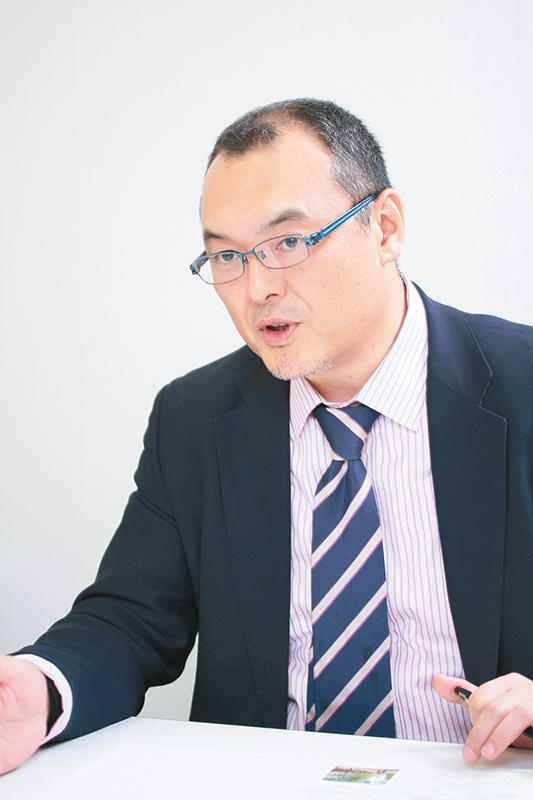
We want to demonstrate the form of support that companies can provide
──How do you think Nikkei can raise awareness?
Tobori: For instance, by truly empathizing with those who feel barriers, companies can discover support measures they hadn't considered before. For this inaugural seminar of Nikkei Magazine FUTURECITY, we wanted our own company to demonstrate this. With Fujitsu's cooperation, we introduced "FUJITSU Software LiveTalk," a tool that displays conversations as text in real time. Its multilingual capability makes it effective not only for the hearing impaired but also for foreign attendees. Learning how such technology can be useful in seminar settings makes us realize, somewhat embarrassingly, that our own perspective is still narrow. We want Nikkei to take the lead in practicing barrier-free initiatives, so that our corporate readers understand what it means to "open up" from a company's standpoint.
──Through these initiatives, Nikkei itself has already gained valuable insights, hasn't it?
Tobori: Exactly. Talking with the Time Out Tokyo team, I'm struck by how global their perspective is. Foreigners see things from a completely different angle, so simply translating Japanese articles into English doesn't work.
Fushitani: For this issue, we collaborated with the London production team. Supporting minorities is so deeply ingrained in their mindset that when they saw the article "10 Ways to Open Up Tokyo," their reaction was, "Why are you advocating for this in Tokyo now?" Sharing that external perspective with everyone is also meaningful, isn't it?
──Mr. Shirakawa, as the head of Nikkei's Olympic and Paralympic Promotion Office, how do you view this initiative?
Shirakawa: OPEN TOKYO places strong emphasis on realizing a society that embraces diversity, so I believe it has significant relevance to the Paralympics. Particularly, this Games are being held in Japan, which is facing super-aging ahead of the rest of the world. It's attracting attention as a place where we can discover various solutions useful for the future. OPEN TOKYO will help support meeting those expectations. As the Promotion Office, I also see it as an important initiative for disseminating information on both the Olympic and Paralympic Games.

Transforming Tokyo 2020 into a showcase of technology and expertise
──What vision is embodied in the "FUTURECITY" theme both companies are promoting?
Fushitani: With OPEN TOKYO, we aim to make Tokyo enjoyable for everyone while also viewing 2020 as an opportunity to revitalize Japan beyond that year. We hope to make it a grand showcase presenting the city of the future to the world. As Mr. Shirakawa pointed out, Japan is often called a pioneer in facing challenges, including its super-aging society. If we can realize the future city envisioned by Japan in Tokyo 2020 and showcase it for the world to experience, I believe people will surely think, "We want that Japanese technology, we want that expertise." If that happens, companies will find new markets, the economy will be revitalized, and the city will thrive. OPEN TOKYO also aims for such a future.
Tohori: Until 2020, a huge wave of enthusiasm and excitement will likely come even without us doing anything. The crucial thing is to prepare ourselves to ride that wave and connect it to the future. After all, Japan is a technology-driven nation, and 2020 is a major opportunity to show the world a new kind of city. For us, we want to closely monitor domestic movements and support efforts to strengthen the Japanese economy.
──Finally, could you share your future plans and outlook?
Tobori: OPEN TOKYO isn't just about Tokyo; it's crucial to expand it to regional areas and ultimately open up all of Japan. This applies to regional revitalization too. We'll use this opportunity to reexamine various social issues and communicate them through platforms like Nikkei Magazine FUTURECITY and events planned for autumn and beyond. We also want to significantly broaden our activities themselves, actively collaborating with other companies and NPOs to drive progress.
Shirakawa: The Olympic and Paralympic Promotion Office will separately host forums with experts to aim for a better Tokyo Games. We plan to incorporate diversity measures there too. Furthermore, we want to explore new forms of newspapers that could deliver information to minorities who currently find reading newspapers in their current format difficult, potentially using technology.
Fushitani: We also want to open up our activities and encourage more people to join. We aim to create an 'OPEN TOKYO' guide that goes beyond paper, utilizing the latest technology. It would be exciting to hold events that could be called OPEN TOKYO showcases, where people can actually experience new technologies in the city. By bringing together the insights of various people, we can surely make this happen.
(Interviewer: Tetsuro Toyoda, Dentsu Inc. Publishing Business Development Division)

OPEN TOKYO is a movement to open Tokyo to the world
Hiraku means to open. To reveal. To enlighten. To pioneer. Opening Tokyo to people around the world.
A movement that uses the 2020 Tokyo Olympic and Paralympic Games as an opportunity to open Tokyo to everyone worldwide, thereby opening up the city's future. It's an initiative to realize a Tokyo that all people can enjoy—including people with disabilities, the elderly, children, parents raising children, LGBT individuals, foreigners, and minorities—by removing the psychological, physical, and social barriers inherent in Tokyo's language, culture, social systems, and more. It highlights, inspires, and shares globally the activities of companies, organizations, and individuals working to eliminate various barriers.




Nikkei Magazine FUTURECITY
Published as a Nikkei supplement on March 30.
In addition to interviews with prominent figures including Tokyo Governor Yuriko Koike, the issue features an examination of city innovation at the 2012 London Olympics and Paralympics, and the latest news driving Tokyo's opening. It also presented "10 Ways to Open Tokyo."


10 Things to Open Up Tokyo
What should be done to open up Tokyo?
Time Out Tokyo presented
10 things anyone can start doing today.
01
Enjoy conversation
Before making the city barrier-free, make people barrier-free. If you see someone lost in unfamiliar Tokyo or seeking help, actively offer a word. Conversation is the greatest reassurance.
02
Reflect on your own attitude
Barriers for people with disabilities and the elderly aren't just stairs and steps. Without small acts of consideration—respecting their position and avoiding singling them out—barriers are created.
03
Step Out with a New Perspective
Know that things invisible to your usual self exist. Push a stroller, ride a wheelchair, or walk with a cane through familiar streets—you'll notice narrow passages and inconvenient steps. Therein lie hints for improvement and assistance.
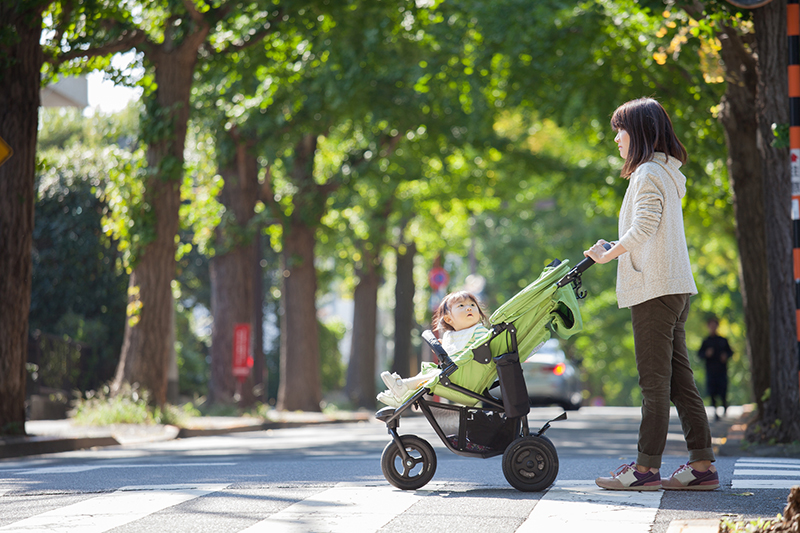
04
Harness the power of design
For people from different cultures and histories, Japanese common sense is like common sense from another world. Let's harness the power of "design" that benefits everyone to create inclusive solutions that are more convenient, easier to understand, and deepen mutual understanding.
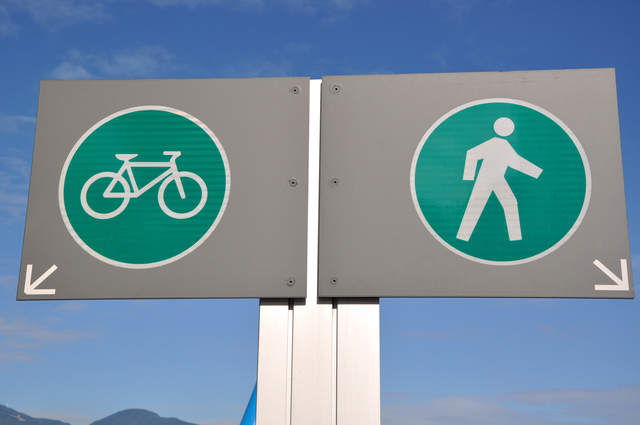
05
Breaking Down Language Barriers
Multilingual support is now standard. But it's not enough just to make words understandable. We value communication that makes people want to enjoy even the parts where words don't connect.
06
Overcoming Prejudice
Tokyo is gradually becoming a city where LGBT travelers feel comfortable. Understand that one's gender identity, personal preferences, and whom they love are inviolable.
07
Begin Preparing for the Paralympics
The Paralympics aren't the only stage for athletes with disabilities to shine. Start preparing now to watch sports events held throughout the year across the country, so we can welcome 2020 with packed stadiums.
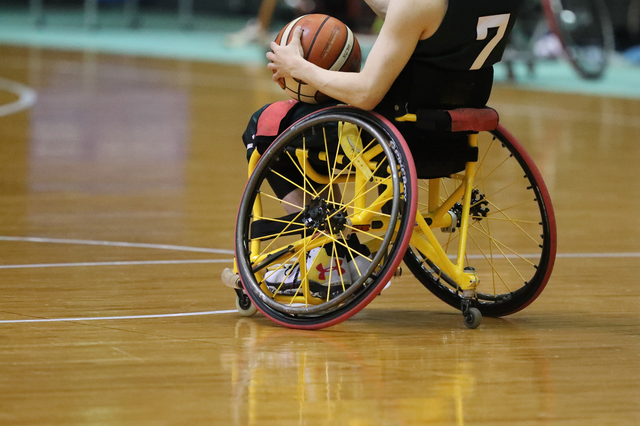
08
Breaking Down Boundaries
Tokyo has facilities like the Shin-Toyosu Brillia Running Stadium, where universal design bridges sports for able-bodied and disabled athletes. Boundaries can be overcome with a single thought.
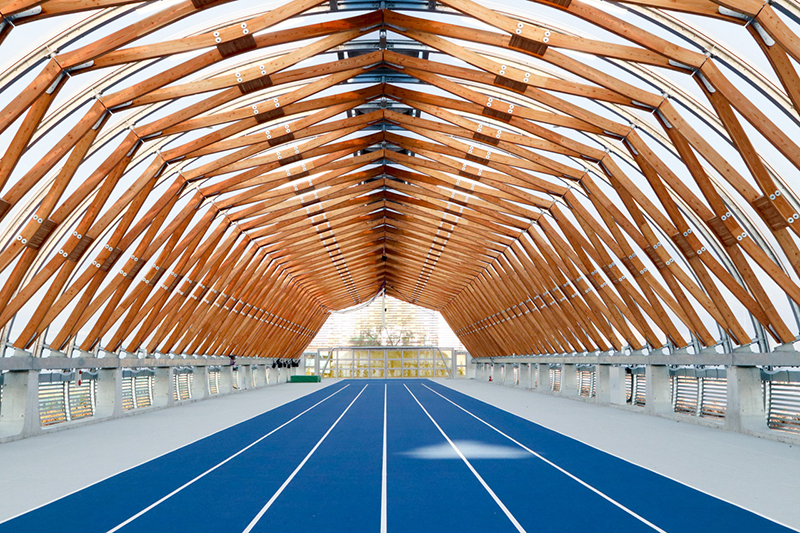
09
Giving Children Opportunities
Make Tokyo a kinder place for children. Secure the city's future. When a child gets fussy on a plane or in a restaurant, try offering a warm smile to both the child and their parent.
10
Honoring Everyone's Food
A feast isn't complete just because it's delicious. How well can Tokyo accommodate people who choose specific meals for religious reasons? Let's bring the joy of eating to everyone.

EVENT REPORT
Nikkei Magazine FUTURECITY Seminar
"OPEN TOKYO Talk"
in Tokyo Midtown 2017.4.21
On April 21, a seminar event was held to explore ways to open up Tokyo. Introduced by master of ceremonies Rio Hirai, the speakers were Takaaki Umezawa, Chairman of A.T. Carney Japan; Ryo Kurisu, Director of Slow Label; Makoto Tokuda, General Manager of Public Relations at Mitsui Fudosan; Hiroyuki Fushitani, Representative Director of Time Out Tokyo; and Miki Shirakawa, Head of the Olympic and Paralympic Promotion Office at Nikkei Inc. Fujitsu's communication tool "LiveTalk," which recognizes and transmits speech and displays it in multiple languages, was introduced at the venue, making real-time communication regardless of language or disability a reality.
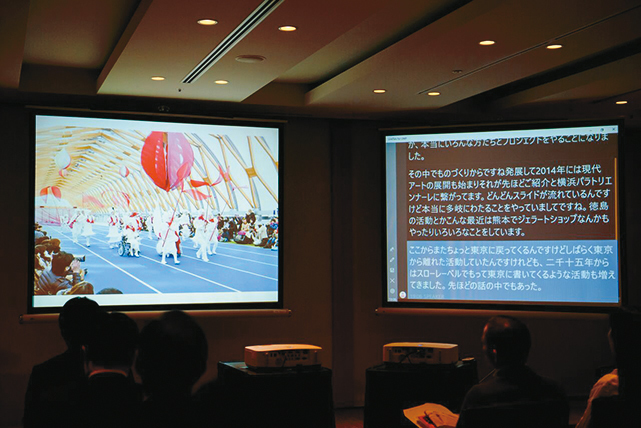
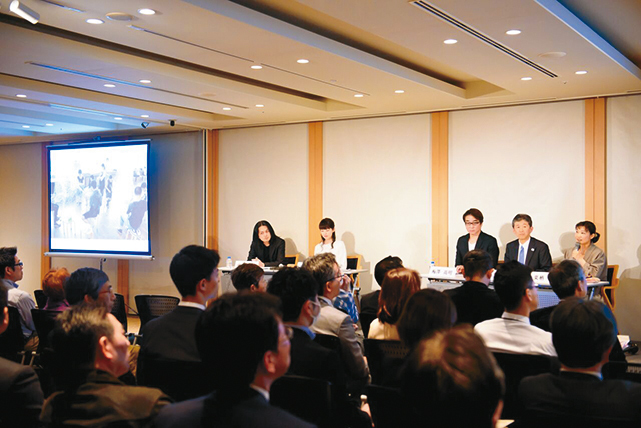
Future Plans
An autumn event is also planned to coincide with the October release of the second issue of Nikkei Magazine FUTURECITY and the launch of web content.
Was this article helpful?
Newsletter registration is here
We select and publish important news every day
For inquiries about this article
Author

Hiroyuki Fushitani
Time Out Tokyo
President and CEO
Born in Shimane Prefecture in 1966. Graduated from Kansai Gaidai University in 1991. Joined Tower Records while still a university student. Appointed president in 2005. That same year, founded Napster Japan and served as its president concurrently, launching Japan's first music subscription service. Founded Time Out Tokyo in 2009 and became its representative.

Hayato Tobori
Nikkei Inc.
Cross-Media Sales Division Sales Department Group 5
Department Manager
Joined Nikkei Inc. in 1991 and was assigned to the Osaka headquarters. Transferred to the Tokyo headquarters in 1997. Handled advertising sales for the IT industry and was seconded to Nikkei America, Inc. in 2006. After a five-year assignment there, returned to Japan and joined the Cross-Media Sales Division 1 in 2011, then the Digital Business Division in 2014. Assumed current position in April 2016.

Miki Shirakawa
Nikkei Inc.
Director of the Olympic and Paralympic Promotion Office
Joined Nikkei Inc. in 1993, seconded to Nikkei Home Publishing (now Nikkei BP) in 1998, and returned to the Tokyo headquarters in 2002. Since joining the company, has been responsible for advertising sales in cosmetics, healthcare, publishing, and other sectors. Transferred in 2015 with the establishment of the Olympic and Paralympic Games Preparation Office, and has held the current position since January 2016.